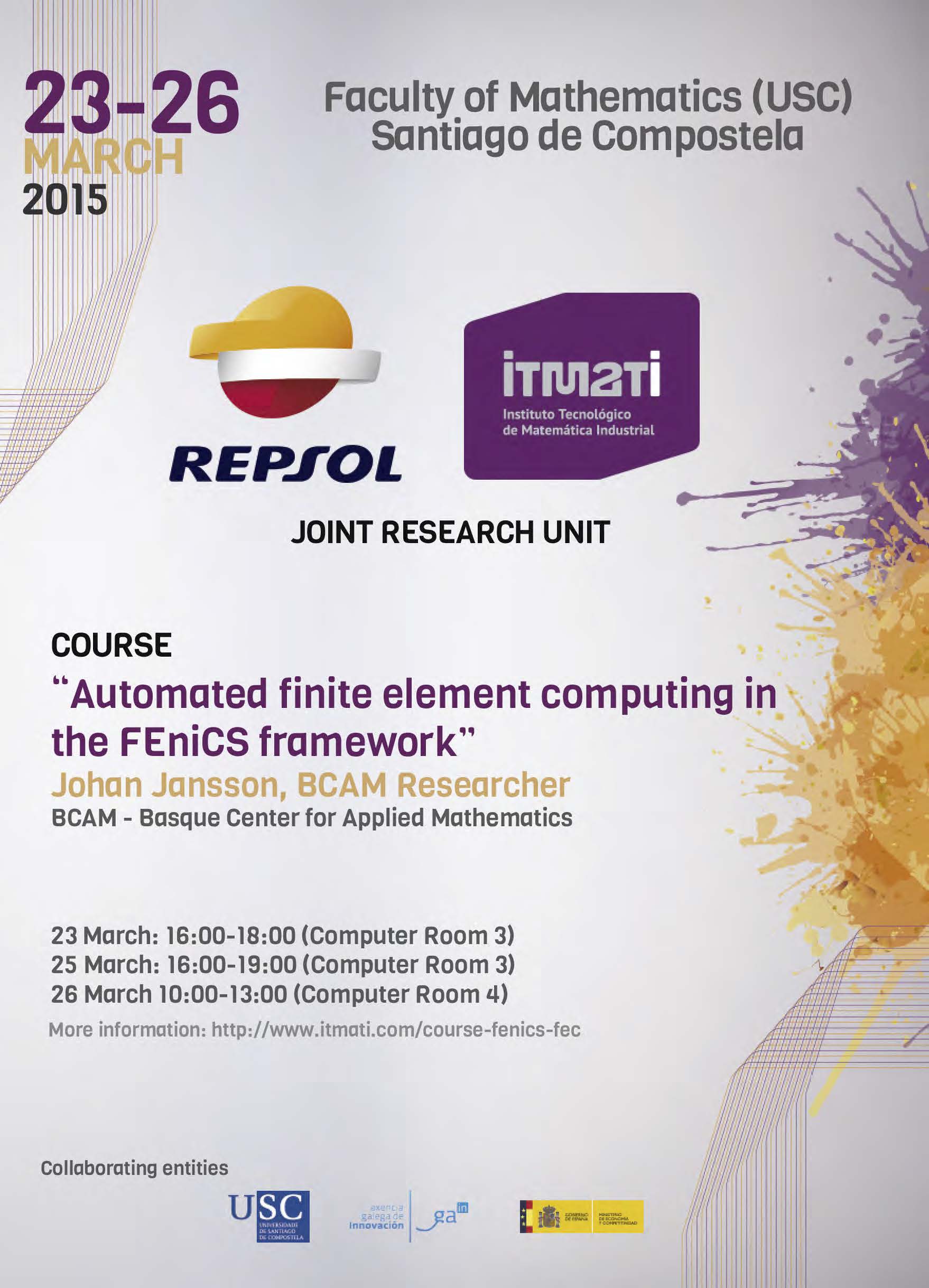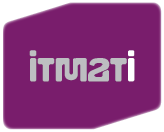Curso: "Automated finite element computing in the FEniCS framework"
Del 23 al 26 de marzo Johan Jansson ( BCAM researcher) visita ITMATI para impartir el curso: "Automated finite element computing in the FEniCS framework"

- RESUMEN
Basic laws of nature are typically expressed in the form of partial differential equations (PDE), such as Navier's equations of elasticity, Maxwell's equations of electromagnetics, Navier-Stokes equations of fluid flow, and Schrödinger's equations of quantum mechanics. The Finite element method (FEM) has emerged as a universal tool for the computational solution of PDEs with a multitude of applications in engineering and science. Adaptivity is an important computational technology where the FEM algorithm is automatically tailored to compute a user specified output of interest to a chosen accuracy, to a minimal computational cost.
Developing multiphysics finite element methods (FEM) and scalable High-Performance Computing (HPC) implementations can be very challenging in terms of software complexity and performance, even more so with the addition of adaptive error control. To manage the complexity we in this course will learn about general adaptive methods and the FEniCS automated open source software framework taking the weak form of the PDE as input in near-mathematical notation and automatically generating low-level source code for assembling tensors and a posteriori error estimates and indicators for adaptive error control. Other key concepts in the course are automateddifferentiation for treating non-linear problems and a transparent and scalable HPC implementation.
We will demonstrate the concepts in the course on a range of applications, and analyze a large-scale application to adaptive computation of aerodynamic forces on a full aircraft at take-off and landing with good match to experiments.
- INFORMACIÓN PARA LA PARTE PRÁCTICA:
The practical part of the course will require the use of the Simtek platform (http://simtek.bcamath.org); PCs in the computer rooms will be ready to connect to Simtek. If anybody want to bring his own laptop, he must check whether ParaViewWeb (http://paraviewweb.kitware.
- PROGRAMA:
| Fecha | Lugar | Hora | Contenido |
| Lunes 23 de marzo | Aula de informática 3 | 16:00-18:00 | Intro to FEM, FEniCS,Key concepts of FEniCS. |
| Miércoles 25 de marzo | Aula de informática 3 | 16:00-19:00 |
Demo and hands-on of FEniCS (Part 1) Adaptive a posteriori error control, General stabilized methods, Demo and hands-on of adaptivity, application to Navier-Stokes. |
| Jueves 26 de marzo | Aula de informática 4 | 10:00-13:00 |
Demo and hands-on of FEniCS (Part 2) High-performance computing, Turbulence, Large-scale application to aerodynamics |
- INSCRIPCIONES: Pueden confirmar su asistencia en itmati@itmati.com
- Plazas limitadas. Fecha límite de inscripción: Jueves 19 de marzo a las 14.00 horas.
- RECORDATORIO:
Las salas donde se realizará el curso disponen de ordenadores, en el caso de que el número de inscritos supere los 20, cabe la posibilidad de compartir ordenador cada 2 personas. Se recuerda que no hay inconveniente si alguien desea llevar su propio ordenador, se recomienda que se traiga, pero debe comprobar que permite la ejecución de ParaView Web (http://paraviewweb.kitware.
Se entregará un certificado de asistencia para aquellos que lo soliciten.








